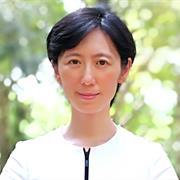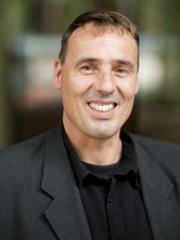Characterisation of the Kir4.2 channel as a critical new target for Parkinson’s disease
This study is being led by Dr Linlin Ma at Griffith University in collaboration with Prof. Ernst Wolvetang at The University of Queensland. The research team have identified a mutation in the KCNJ15 gene that is present in multiple generations of an Australian family with Parkinson’s but is not present in a large cohort of healthy controls. KCNJ15 belongs to a group of biological targets that respond well to drug interventions, so successful results from this project could suggest a new target for Parkinson’s.
With this funding, the Ma group will continue to create iPSC lines from this family, along with gene-corrected controls. They will convert these iPSCs into dopaminergic neurons in vitro in order to assess what effect this mutation has on neurons.
About Dr Linlin Ma – Griffith University
 I am a molecular biologist and physiologist in the ion channel research field. Ion channels are a group of pore-forming membrane proteins that facilitate and control the diffusion of ions across biological membranes. They underlie a wide variety of biological processes, varying from neurological excitability to T-cell activation and insulin secretion. Accordingly, the malfunction of different ion channels could lead to a variety of diseases such as epilepsy, cystic fibrosis, pain, etc. My major research interest is to understand the gating properties and functional features of interested ion channels in related pathological settings. Using methods in molecular biology, electrophysiology (patch clamp), cell biology and protein biochemistry, my lab mainly focuses on elucidating the pathological roles of potassium channels and calcium channels in neurological diseases, such as Parkinson’s disease, and identifying new channel modifiers from natural resources.
I am a molecular biologist and physiologist in the ion channel research field. Ion channels are a group of pore-forming membrane proteins that facilitate and control the diffusion of ions across biological membranes. They underlie a wide variety of biological processes, varying from neurological excitability to T-cell activation and insulin secretion. Accordingly, the malfunction of different ion channels could lead to a variety of diseases such as epilepsy, cystic fibrosis, pain, etc. My major research interest is to understand the gating properties and functional features of interested ion channels in related pathological settings. Using methods in molecular biology, electrophysiology (patch clamp), cell biology and protein biochemistry, my lab mainly focuses on elucidating the pathological roles of potassium channels and calcium channels in neurological diseases, such as Parkinson’s disease, and identifying new channel modifiers from natural resources.
Professor Ernst Wolvetang – The University of Queensland
 Professor Wolvetang is an international leader in the area of pluripotent stem cell biology and human functional genomics. he initiated and leads Cell Reprogramming Australia, a collaborative framework that facilitates induced pluripotent stem cell research in Australa and is co-director of the UQ Centre in Stem Cell Ageing and Regenerative Engineering (StemCARE). He has extensive expertise in reprogramming somatic cells, differentiation and tissue engineering with adult, embryonic and induced pluripotent stem cells, genome manipulation with CRISPR, molecular biology, transcriptome analysis, high content image analysis, development and use of microfluidic devices for cell analysis, nanoparticle and scaffold design and delivery, and stem cell and cell-free regenerative medicine approaches.
Professor Wolvetang is an international leader in the area of pluripotent stem cell biology and human functional genomics. he initiated and leads Cell Reprogramming Australia, a collaborative framework that facilitates induced pluripotent stem cell research in Australa and is co-director of the UQ Centre in Stem Cell Ageing and Regenerative Engineering (StemCARE). He has extensive expertise in reprogramming somatic cells, differentiation and tissue engineering with adult, embryonic and induced pluripotent stem cells, genome manipulation with CRISPR, molecular biology, transcriptome analysis, high content image analysis, development and use of microfluidic devices for cell analysis, nanoparticle and scaffold design and delivery, and stem cell and cell-free regenerative medicine approaches.


